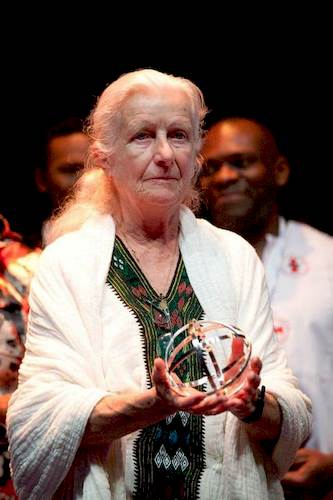- +251116186774 Call Us Now
- info@isd-bio.org E-mail Us
- Home
- About Us
- Projects
- Resilience Principles to Strengthen the Ecological Organic Agriculture(EOA) initiative – SSNC
- Nutrition in Mountain Agro-ecosystem /NMA Phase II/ – IFOAM
- EOA Initiative Ecological Organic Agriculture Initiative for Africa (EOA Phase II) -SDC-BvAT
- YOUTH CULTURE AND BIODIVERSITY PROGRAM – TCF
- Strengthen Net Working, Influence Policy On Food Sovereignty, Community Resilience & Regenerate Biocultural Diversity In Africa – ABN
- Upscaling The Benefits Of Push-Pull Technology For Sustainable Agriculture Intensification In East Africa -EU
- Rural Women Cultivating Change in East Africa (RWCC) – Global affairs Canada/ SeedChange
- AVACLIM
- AGRO ECOLOGY, ENSURING FOOD SECURITY AND SUSTAINABLE LIVELIHOOD WHILE MITIGATING CLIMATE CHANGE AND RESTORING LAND IN DRY LAND REGIONS/AVACLIM PROJECT/ – GEF, FAO & CARI
- PELUM
- Donors/Partners/Networks
- Media
- Events
- Get Involved
- Contact Us
About Us
Our Vision and Mission
Institute for Sustainable Development (ISD)
ISD has its main office in Addis Ababa, Ethiopia. It started in 1996 when Dr Tewolde Berhan Gebre Egziabher and his wife, Sue Edwards, were asked by the Ethiopian Government about alternatives to expensive external inputs, particularly chemical fertilizer, for smallholder farmers to make their land productive. Together with Dr Mitiku Haile, then President of Mekelle Universitty, and Berhane Haile, then Head of the Tigray Bureau of Agriculture and Rural Development, they developed an ecologically-oriented project and identified 4 local communities to be its active participants. Berhane Haile also assigned an experienced extension officer, Arefayne Asmelash, to work on the project based in the Bureau in Mekelle. The project, now programme, focuses on using ecological principles in improving natural resources management, cycling nutrients and respect for farmers’ traditional knowledge, innovations and practices, including local self-governance. This was the beginning of the internationally recognized Tigray Project granted the Gotheburg Award for Sustainability on 11 December 2011 in Gothenburg, Sweden.
The project started with support from the Third World Network, headquartered in Penang, Malaysia. Positive outcomes came quickly so that the project converted into a programme as ISD developed a good understanding of what makes up ‘sustainable development’ in the Ethiopian context. Now the Tigray Project provides the framework for the work facilitated by ISD’s Ecological Agriculture Team for partners in the highland mixed farming communities of the country. It is also starting to address the need for affordable clean renewable sources of energy, particularly from clean cook stoves and biodigesters, as these contribute to mitigating climate change and cycling nutrients and carbon back to the soil.
In 1998, ISD also started working with school environment clubs and self-organized out of school youth in Addis Ababa which were concerned to improve local environmental management for clean and healthy lifestyles. There are now, in 2013, over 24 schools from all regions of the country and around 25 youth group partners in six urban areas working with the Youth Capacity Development Team of ISD. Students and youth, their teachers and local leaders, are given training and follow-up in organic urban agriculture along with social and business skills to become effective entrepreneurs.
A central theme in ISD’s work is support for the Convention on Biological Diversity, its associated Protocols and the International Treaty on Plant Genetic Resources. In particularly, ISD’s work is aimed at the integration of valuable and time-tested traditional knowledge and technologies with modern knowledge from both natural and social sciences. This is effected through action-oriented research with farmers, development workers and other like-minded civil society organizations both within Ethiopia and other countries of Sub-Saharan Africa
Vision
The vision of ISD is to contribute towards an Ethiopia that is free from hunger and poverty by combining the best in modern and traditional knowledge.
Mission
Our mission is to raise the importance of using sustainable knowledge, practices and innovations in order to support and improve the livelihoods of local communities in Ethiopia. We work to incorporate the best of both traditional and modern knowledge through sharing experiences, open dialogue, research and training, based on genuine participation.
The ethical values of ISD
Respect the knowledge, practices and cultures of local communities with regard to natural resources management, and learn from them Believe in equity and solidarity. Provide an equal employment opportunity regarding sex, religion, Political outlook and physical condition. Respect the laws and regulations of the country. Use transparency and accountability in all relationships. Respect each other and work together. Make effective and efficient use of resources and give high commitment to the organization and its work; and Believe in and practice comprehensive participation with all stakeholders.
Objectives of ISD
Carry out research to speed up development by bringing together the best in traditional knowledge and modern science.
Promote activities focused on the link between cultural diversity and biodiversity, also called bio-cultural diversity, with the youth to raise the appreciation of indigenous knowledge for sustainable livelihoods and a better future.
Support and organize meetings and exchange visits which promote dialogue and information exchange on issues related to biodiversity, sustainable development and the assertion of the livelihood rights of the poor majority of the South.
Publish books, manuals and other information materials on biodiversity, natural resources, indigenous knowledge and related issues to provide technical information for development for workers and educators at all levels and
Share information through print and electronic media to create awareness among development workers in government and the public at large on issues that promote the sustainable uses


